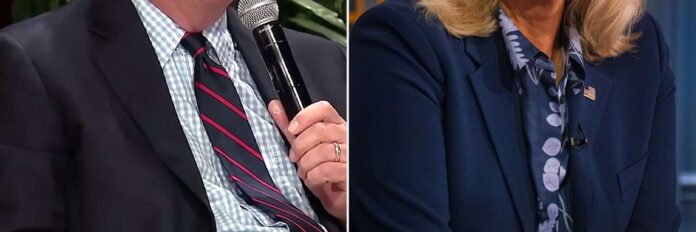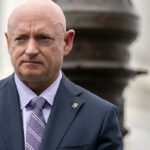
In an unexpected moment of public self-reflection, Daily Caller News Foundation co-founder Tucker Carlson issued a direct apology Wednesday to former Wyoming Rep. Liz Cheney for comments he made in the aftermath of former Vice President Dick Cheney’s death.
The remarks, which he now characterizes as “awful” and “hard to believe,” surfaced during an earlier appearance on Megyn Kelly’s SiriusXM program, where Carlson said he would “consider” suicide if he had a daughter like Cheney.
On a recent episode of The Tucker Carlson Show, Carlson revisited those comments in detail, acknowledging the severity of his language and expressing genuine remorse.
“I said that her father would be ashamed of her, and if I had a daughter like that, I’d probably kill myself, which is an awful thing to say,” he said. “It’s kind of hard to believe I said that.” Carlson explained that his long-standing political disagreements with Cheney had distorted his judgment, leading him to treat her as someone “not really human” in the heat of his criticism.
He went further, questioning his own thought process at the time: “Who thinks like that? Who talks like that? Well, I did.” Carlson emphasized that his apology was sincere. “I just want to say I’m sorry to Liz Cheney, and I mean that too. I shouldn’t have said that.”
The original comments were made shortly after Carlson described Liz Cheney as a “repulsive daughter,” a continuation of the sharp critiques he has long leveled against her. During his tenure at Fox News, Carlson frequently labeled Cheney a “neocon warmonger” and “liar,” targeting her support for U.S. foreign interventions and her leading role on the January 6th Select Committee.
He also criticized her endorsement of former Vice President Kamala Harris, calling it evidence of her alienation from Republican voters.
Dick Cheney, the catalyst for the renewed scrutiny over Carlson’s remarks, died Nov. 4 at the age of 84 from complications related to pneumonia and cardiovascular disease. His passing marked the end of a decades-long political legacy—one often defined by strong ideological divides, many of which carried over to the next generation.
Carlson’s apology does not erase his long-running critique of Liz Cheney’s political positions, but it does represent a notable departure from the unfiltered rhetoric that has characterized much of the public feud between them.








